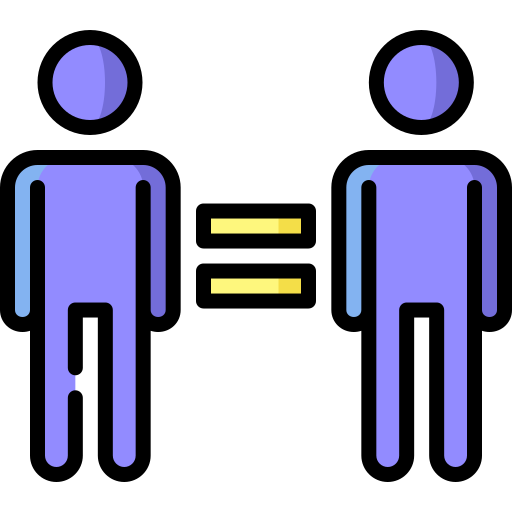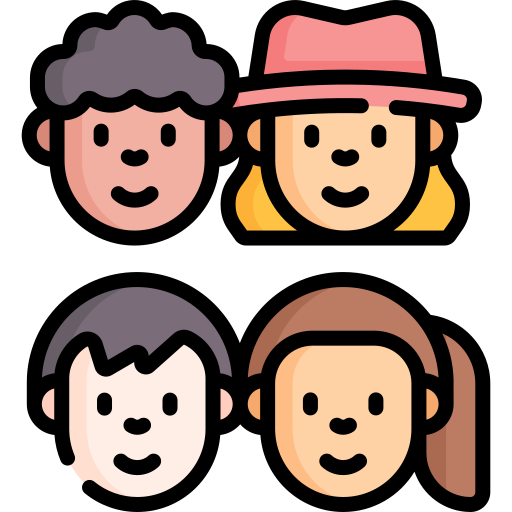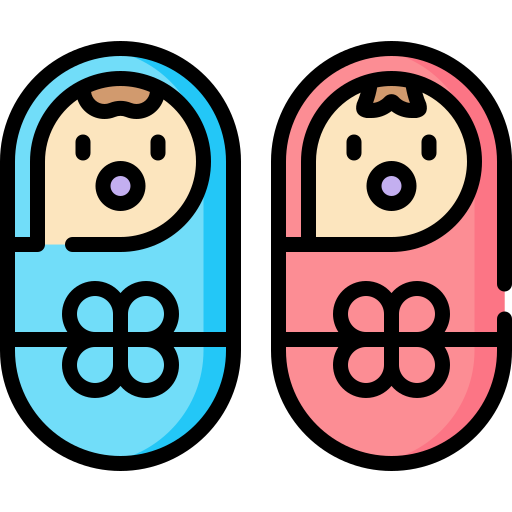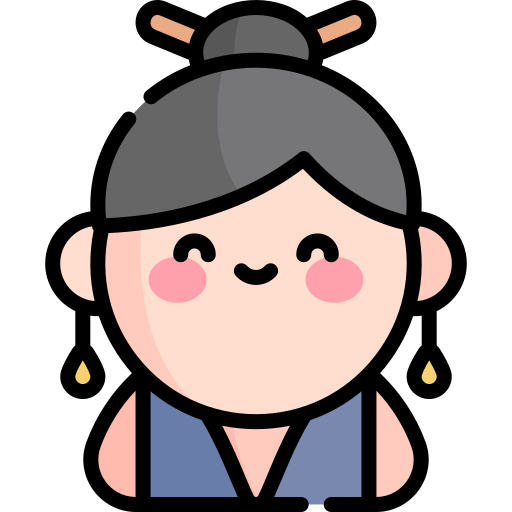 Survival Korean
Survival Korean
Special | A | B | C | D | E | F | G | H | I | J | K | L | M | N | O | P | Q | R | S | T | U | V | W | X | Y | Z | ALL
가 |
|---|
가족
Definition가족 is the Korean word for family, referring to one's immediate (i.e., mom, dad, brother, sister, etc.) family. | |
강 |
|---|
강하다
Definition강하다 is the Korean adjective meaning "to be strong". You will commonly see and hear it as 강해 or 강해요. | |
게 |
|---|
고 |
|---|
고조할머니
Definition고조할머니 is the Korean word refering to one's great-grandmother (i.e., your grandmother's mother). | |
고조할아버지 | |
관 |
|---|
관계
Definition관계 is the Korean word meaning relationships. There are many kinds of relationships that can be described in Korean from generic human relationships (인간관계) to more specific family relationships (i.e., 가족관계). | |
날 |
|---|
날씬하다
Definition날씬하다 is the Korean adjective that means "to be thin". You will commonly see and hear it as 날씬해 or 날씬해요. | |
남 |
|---|
남동생
Definition남동생 is the Korean term referring to younger siblings, however, specifically referring to younger brothers. It is composed of two parts: 남 meaning male, and 동생 which refers to younger siblings. You can even use the term 동생 generically to refer to all younger siblings. | |
누 |
|---|
누나
Definition누나 is a Korean word referring to one's older sister. This term, however, is used only by men to refer to their older sisters. | |
대 |
|---|
대가족
Definition대가족 is the Korean word for one's extended family, referring to your aunts, uncles, cousins, etc. | |
동 |
|---|
동갑
Definition동갑 is the Korean word that means being the same age as one one else. That is, rather than being younger or older, you are the same age. This distinction is important in Korean culture as it means you can be friends verus having a hierarchical relationship by age as defined by Confucian philosophy. | |
딸 |
|---|
딸
Definition딸 is the Korean word referring to one's own daughter. | |
똑 |
|---|
똑똑하다
Definition똑똑하다 is the Korean adjective meaning "to be smart". You will commonly see and hear it as 똑똑해 or 똑똑해요. | |
뚱 |
|---|
뚱뚱하다
Definition뚱뚱하다 is the Korean adjective which means "to be fat". You will commonly see and hear it as 뚱뚱해 or 뚱뚱해요. | |
막 |
|---|
막내
Definition막내 is the Korean term referring to one's youngest child. It can also be used in general group settings to refer to yourself (or someone else) as the youngest member in the group. | |
며 |
|---|
며느리
Definition며느리 is the Korean term referring to one's daughter-in-law (i.e., your son's wife). | |
배 |
|---|
배우자
Definition배우자 is the Korean word which means "spouse" (i.e., a married couple, husband/wife, etc.). | |
부 |
|---|
부모
Definition부모 is the word in Korean for "parents". It is often accompanied by the honorific suffix "님" and heard as 부모님. | |
사 |
|---|
사돈
Definition사돈 is the Korean word referring to one's in laws (i.e., their mother and father in-law). These are their spouse's parents. | |
사위
Definition사위 is a Korean term referring to one's son-in-law (i.e., your daughter's husband). | |
사촌
Definition사촌 is the Korean word referring to one's cousins (i.e., your uncles/aunts' children). | |
삼 |
|---|
삼촌
Definition삼촌 is the Korean word which means generically means uncle (i.e., your father/mother's brother). It can also be used to refer generically to older non-biologically related friends of one's family as a term of endearment. | |
성 |
|---|
성격
Definition성격 is the Korean word that means "personality" refering to the more intrinsic traits of a person. | |
소 |
|---|
소심하다
Definition소심하다 is the Korean adjective meaning "to be timid". You will commonly see and hear it as 소심해 or 소심해요. | |
숙 |
|---|
숙모
Definition숙모 is the Korean word generically referring to one's aunt (i.e., your father or mother's sister). | |
시 |
|---|
시아버지
Definition시아버지 is the Korean term referring to one's father-in-law, however, it specifically refers to the husband's father. By contrast, the wife's father is referred to as 장인. | |
시어머니 | |
쌍 |
|---|
쌍둥이
Definition쌍둥이 is the Korean word referring to twins. It can be used to describe your own children, the children of otheres, your friends, or even yourself! It can be used to generically to refer to all twins (including identical and fraternal). | |
아 |
|---|
아니다
Definition아니다 is the Korean verb meaning "to not be" (yes, it is a separate verb rather than having the word "not" placed in front of 이다). It is used to link a subject with a predicate (also called a copula in Linguistics) but with negation built in to the meaning. Based on setting and speech register, you will it appear in numerous forms but the three most common are listed below:
You will use 아니에요 for the vast majority of your communication in Korean. | |
아들
Definition아들 is the Korean word meaning one's son. | |
아버님
Definition아버님 is the Korean word referring to a father in general and includes the honorific suffix "님". | |
아버지
Definition아버지 is the Korean word for one's own father. | |
어 |
|---|
어머니
Definition어머니 is the Korean word referring to one's own mother. You will also often here a shorter version of this as "엄마" which is akin to "mom". | |
어머님
Definition어머님 is a word referring to a mother (i.e., someone else's mother), or talking about your mother to someone else. It can even be used to address one's mother-in-law depending on the closeness of the relationship | |
언 |
|---|
언니
Definition언니 is a Korean term referring to one's older sister, however this term is used by females to refer to their older sisters. | |
없 |
|---|
없다
Definition없다 is a Korean verb which literally means to not exist, although this often is used to show the lack of possession (i.e., to not have something) though it technically doesn't take any direct objects-meaning you cannot quite use it like you would in English with the verb "to not have". In any case, you will also see it appear in various verbs based on speech register/level of politeness or humility. The three most common for survial purposes are:
You will likely use 없어요 for the vast majority of your communication in Korean. | |
여 |
|---|
여동생
Definition여동생 is a term referring to one's female younger siblings. It can be used by both men and women. It is made up of two parts: 여 meaning female and 동생 which means younger sibling. | |
예 |
|---|
예민하다
Definition예민하다 is the Korean adjective meaning "to be sensitive". You will commonly see and hear it as 예민해 or 예민해요. It can refer to sensitive issues, topics, or people's emotions, or personality. | |
예쁘다
Definition예쁘다 is the Korean adjective which means "to be pretty". You will commonly see and hear it as 예뻐 or 예뻐요. | |
오 |
|---|
오빠
Definition오빠 is a Korean word referring to one's older brother. However, this term is used by females to refer to their older brothers. | |
외 |
|---|
외가
Definition외가 is a Korean word referring to one's family, however, it specifically refer's to one's mother's family. This can be seen with the prefix 외. | |
외동아이 | |
외할머니
Definition외할머니 is the Korean term referring to one's maternal grandmother, or your mother's mother. | |
외할아버지
Definition외할아버지 is the Korean term meaning grandfather, but it refers to your mother's father or maternal grandfather. | |
이 |
|---|
이다
Definition이다 is the Korean verb meaning "to be". It is used to link a subject with a predicate (also called a copula in Linguistics). Based on setting and speech register, you will it appear in numerous forms but the three most common are listed below:
You will use 이에요for the vast majority of your communication in Korean. | |
있 |
|---|
있다
Definition있다 is a Korean verb which literally means to exist, although this often is used to show possession (i.e., to have something) though it technically doesn't take any direct objects-meaning you cannot quite use it like you would in English with the verb "to have". In any case, you will also see it appear in various forms based on speech register/level of politeness or humility. The three most common for survial purposes are:
You will likely use 있어요 for the vast majority of your communication in Korean. | |
자 |
|---|
자매
Definition자매 is the Korean word which means "sisters". | |
자식
Definition자식 is the Korean word meaning sons and daughters or children, referring to one's own children. | |
작 |
|---|
작다
Definition작다 is the Korean adjective which means "to be small". You will commonly see and hear it as 작아 or 작아요. | |
작은아버지
Definition작은아버지 is the Korean word referring to your uncle on your paternal side (i.e., your father's brother) however this term also means that the uncle is younger than your father, and married. | |
작은어머니
Definition작은어머니 is a Korean word referring to one's aunt, however, it specifically means your father's younger brother's wife. | |
장 |
|---|
장남
Definition장남 is the Korean word referring to one's oldest child, however, it specifically means one's oldest son. | |
장녀
Definition장녀 is the Korean word referring to one's oldest child, however, it specifically refers to one's oldest daughter. You can also refer to yourself as the oldest using this word. | |
장모님
Definition장모님 is a Korean term referring to one's mother-in-law. However, it refer's a mans' wife's mother. | |
장인 어른
Definition장인 어른 is a Korean word referring to one's father-in-law. However, this term is used by a man to refer to his wife's father. | |
정 |
|---|
정직하다
Definition정직하다 is the Korean adjective meaning "to be honest". You will commonly see and hear it as 정직해 or 정직해요. | |
조 |
|---|
조카
Definition조카 is the Korean word for one's nephew (i.e., your sister or brother's son). | |
조카딸 | |
증 |
|---|
증조할머니
Definition증조할머니 is the Korean term referring to one's great grandmother (or your grandfather/mother's mother). | |
증조할아버지
Definition증조할아버지 is the Korean word for great-grandfather (your grandfather's father). It refers to | |
착 |
|---|
착하다
Definition착하다 is the Korean adjectiving meaning "to be kind". You will commonly see and hear it as 착해 or 착해요. | |
친 |
|---|
친가
Definition친가 is a Korean word referring to family, however, it specifically refers to one's father's family. This can be seen with the prefix 친 | |
친정
Definition친정 is a Korean word that means one's parents' family (including both paternal and maternal sides). | |
친척
Definition친척 is the Korean word referring generically to one's relatives (i.e., cousings, aunts, uncles, etc.). | |
친할머니
Definition친할머니 is the Korean term referring to one's paternal grandmother, or your father's mother. | |
친할아버지
Definition친할아버지 is the Korean word referring to one's paternal grandfather (i.e., your father's father). | |
크 |
|---|
크다
Definition크다 is the Korean adjective that means "to be big". You will commonly see and hear it as 커 or 커요. | |
큰 |
|---|
큰아버지
Definition큰아버지 is the Korean word referring to your uncle on your paternal side (i.e., father's older brother). This term is the same whether or not he is married or unmarried. | |
큰어머니
Definition큰어머니 is a Korean word referring to an aunt on your paternal side, however, it specifically refers to the wife of your father's older brother. | |
특 |
|---|
특성
Definition특성 is the Korea word referring to "characteristics", as in the extrinsic qualities of a person. | |
할 |
|---|
할머니
Definition할머니 is the Korean word for grandmother. It can also be used very generally to refer to women of a certain, older age. | |
할아버지
Definition할아버지 is the Korean word for "grandfather". It can also be used to very generally refer to "older" men of a certain, older age. | |
형 |
|---|
형
Definition형 is a Korean word meaning one's older brother. However, this term is only used by men to refer to their older brothers. | |
형제 | |
호 |
|---|
호칭
Definition호칭 is the Korean word which refers to titles, meaning forms of address. These are often very complicated and specific in Korean, and depend on numerous socio cultultural factors such as age or gender, as well as different situations (i.e., at work or at home). These are often used to address and refer to people, rather than using ones given names. | |









